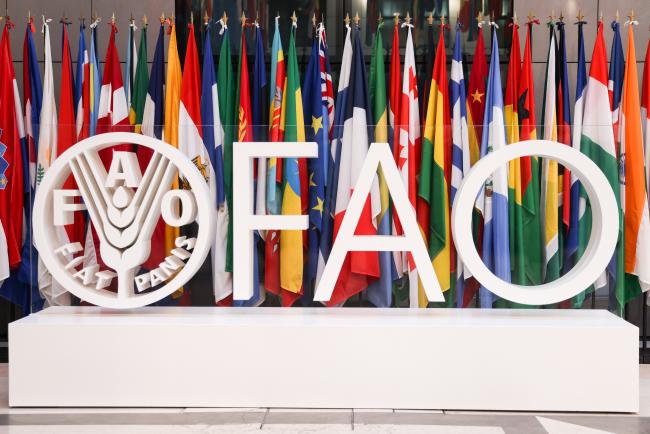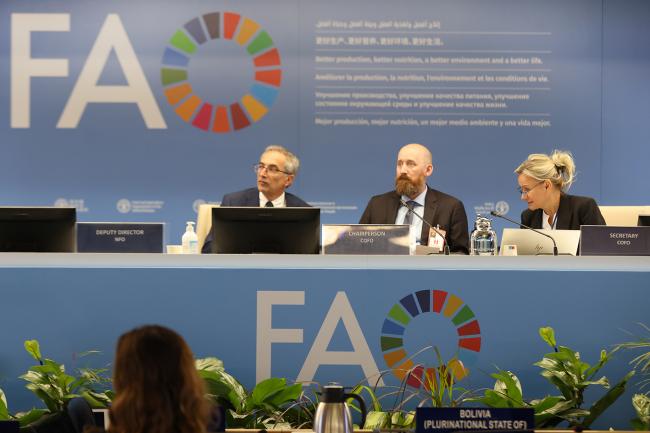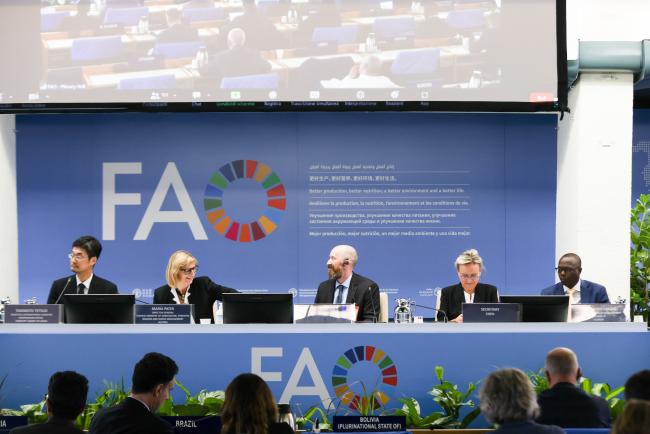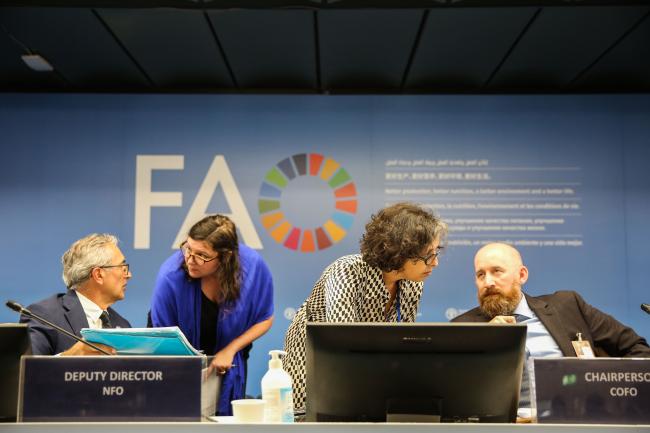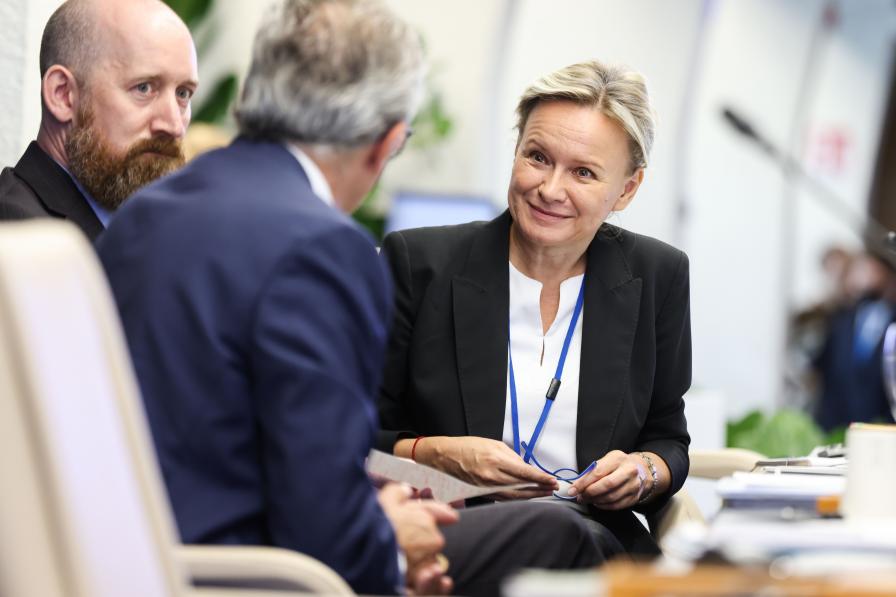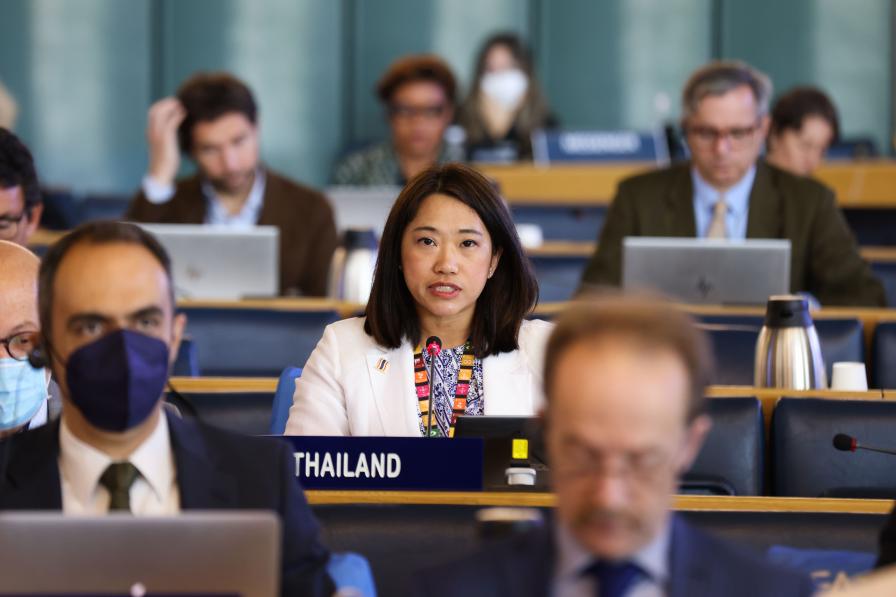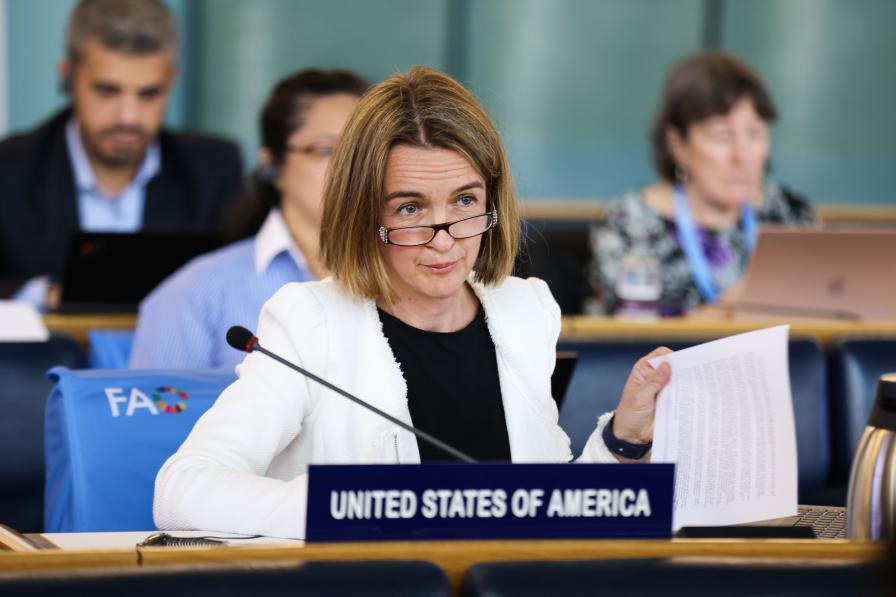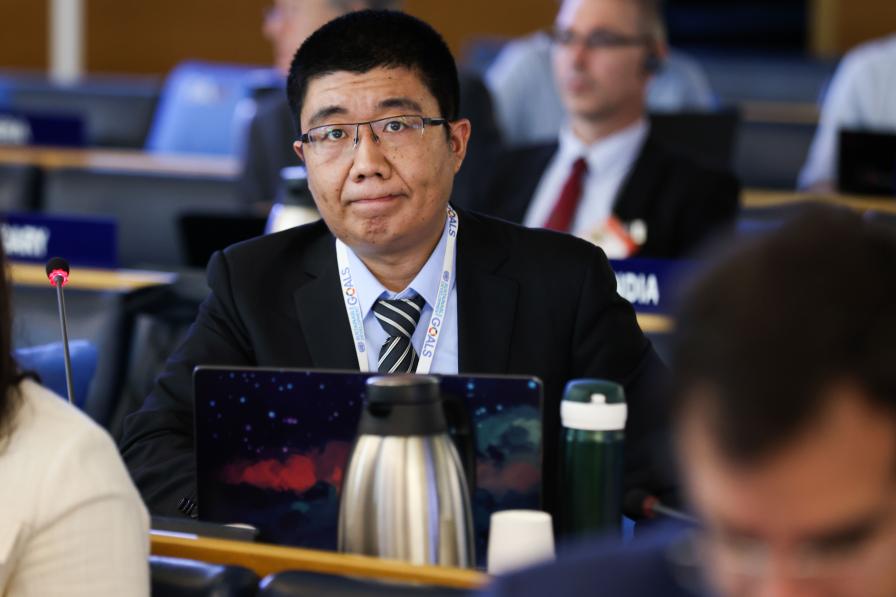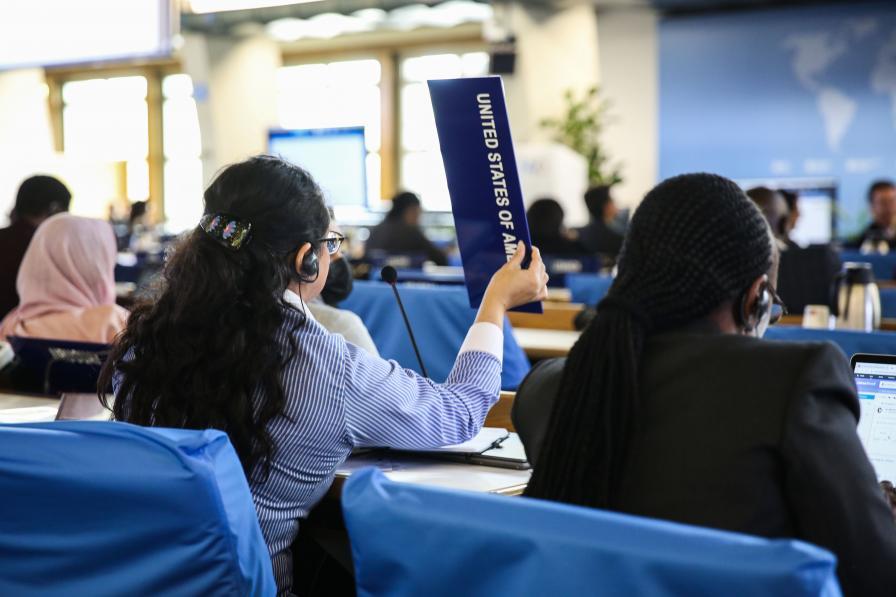On Tuesday, the 26th session of the Committee on Forestry (COFO) of the Food and Agriculture Organization of the United Nations (FAO) spent much of the day trying to reach consensus on conclusions regarding the FAO's flagship forestry report, the State of the World Forests 2020 (SOFO 2022) and its analysis of three interrelated forest pathways for achieving green recovery and tackling multidimensional planetary crises. The Committee also addressed the roles of sustainable wood and non-wood forest products’ value chains and sustainable wood energy in helping the world meet the need to achieve resilient and carbon-neutral economies.
After completing the round of national interventions on SOFO 2022 that had begun on Monday, the Chair offered his draft summary of conclusions on this agenda item. Delegates easily agreed to an additional paragraph suggested by a member, inviting FAO to support for information, knowledge, and development of innovative tools and finance mobilization for topics covered in the report, and inviting FAO to raise awareness about the socio-economic roles of forests. They also agreed to an additional paragraph suggested by a member inviting FAO to support, upon request, members’ efforts to promote small-scale producers, women, local communities and Indigenous Peoples to take active and leading roles in scaling up action on the ground on the forest pathways.
Some members had difficulty with a reference to halting deforestation, preferring instead to “limit” or “manage” deforestation. Others warned against reducing ambition on deforestation enshrined in the Sustainable Development Goals and the Global Forest Goals. In the end, the Committee agreed to language on “collective action to halt forest loss and degradation.”
The Committee had difficulty reaching consensus on three other points regarding the conclusions on SOFO. The first involved the role of agricultural expansion (or agriculture’s expansion) in deforestation: a proposed additional passage noting that agricultural expansion is responsible for nearly 90% of global deforestation, and that the FAO has an important role to play in finding out how to address the causes, was strongly contested by several producer nations.
The second concerned proposed references of the impact of the “war in Ukraine” on forests and food security, which was opposed by the Russian Federation and Belarus. The third involved opposition by Brazil, China, and the Russian Federation to a proposal by the US, supported by Australia, to condition inviting members to strengthen and increase technology transfer “on voluntary and mutually agreed terms.”
The Chair announced he would conduct informal consultations on these issues on Wednesday morning prior to plenary.
The discussion on sustainable wood and non-wood forest products opened with a high-level panel featuring Tanimote Tetsuo, Director, International Forestry Corporation, Forest Agency of Japan; Maria Patek, Ministry of Sustainability, Austria; and Tom Okello Obong, Executive Director, National Forestry Authority, Uganda.
Tetsuo said through public-private partnerships, institutional arrangements and financial mechanisms Japan has encouraged all stakeholders to use sustainably produced wood. Patek stressed the importance of funding research, forest management, and use of innovative technologies. Obong said that the use of non-wood and wood products is essential to local communities and contributes to food security and called on members to assist with solutions that help transform the agrifood system.
The Committee began consideration of the draft conclusions on this agenda item and made minor editorial changes until they reached the provision on technology transfer, where once again members could not agree on a suggested amendment from the US about “mutually agreed terms.” The Committee will resume discussions on the agenda item on Wednesday morning.
All ENB photos are free to use with attribution. For COFO 26, please use: Photo by IISD/ENB | Natalia Mroz
To receive free coverage of global environmental events delivered to your inbox, subscribe to the ENB Update newsletter.

